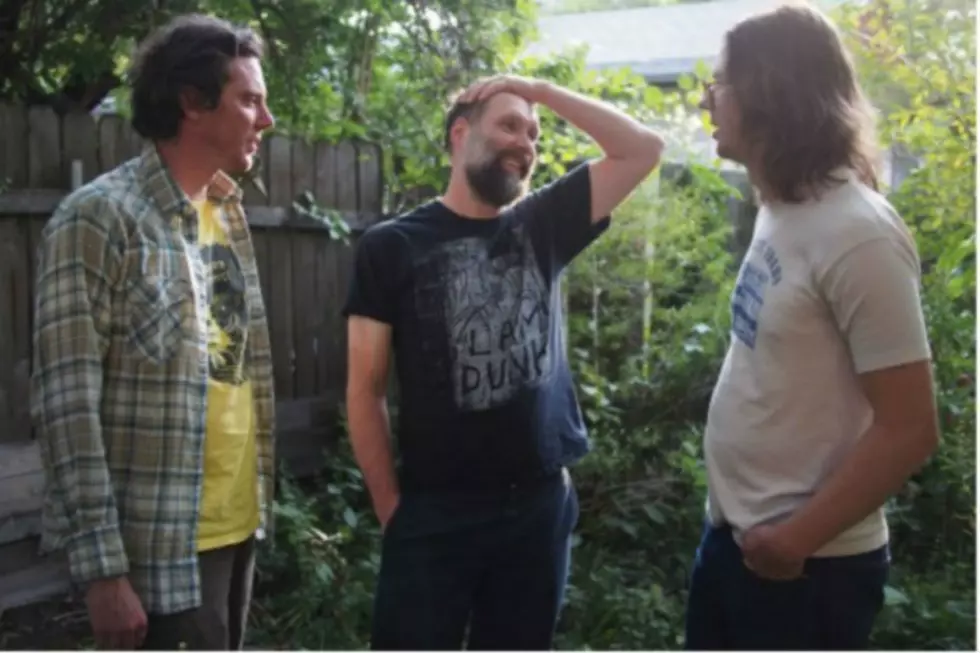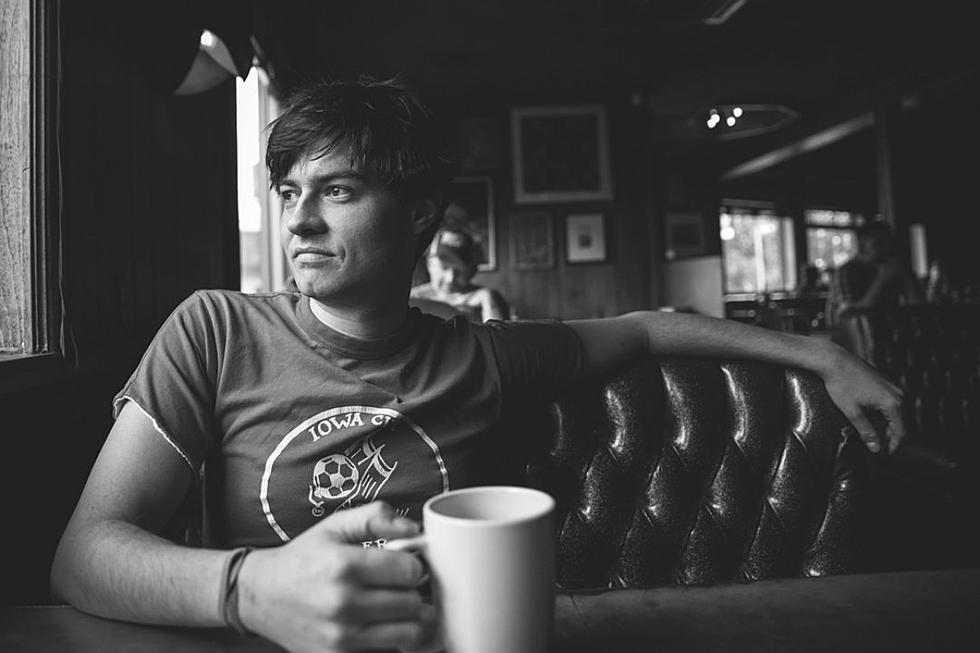
Built to Spill 101: Indie Rock Heroes Prep for First Album in Six Years
On April 21 (or April 18 if you're a Record Store Day fan), Built to Spill will return with Untethered Moon, their first album in six years, which is their longest hiatus between records to date. With that said, if the tracks that have already emerged from the Boise, Idaho, indie-rockers’ forthcoming eighth disc – “Living Zoo” and “Never Be the Same” – are any indication,Untethered Moon will prove to be another addition in a more than 20-year career of remarkably steady and consistent output.
The indie-rock heroes are largely the brainchild of singer-songwriter Doug Martsch. Born in Twin Falls, Idaho, it was there that Martsch formed his first high school band with bassist Brett Netson, one of the key players who would drift in and out of Built to Spill’s continually evolving lineup over the next 20 years. Before teaming up for Built to Spill, Martsch moved to Seattle and joined the alt-rock outfit Treepeople in 1988. There he stayed, contributing to a string of albums before parting ways with the band in 1993 and returning to Boise.
It was then that Martsch reunited with Netson, along with drummer Raif Youtz, to form the very first incarnation of Built to Spill. That same year, the band released its debut, Ultimate Alternative Wavers, on C/Z Records. While it acts a rough introduction to the albums to come, it’s an introduction nonetheless to Martsch’s trademark high-pitched whine of a vocal, fuzzed-out guitars prone to verging off on jagged interludes indebted to Dinosaur Jr.’s J Mascis and elbow-in-the-gut goofy lyrics akin to that of Pavement’s.
Prior to Wavers’ follow-up, Martsch decided he wanted Built to Spill’s roster to be a revolving door of players, leaving him as the only constant member. As such, the frontman overhauled the lineup, bringing in bassist Brett Nelson (not to be confused with Netson) and drummer Andy Capps for the band’s breakthrough sophomore effort, There’s Nothing Wrong With Love. The album found the newly minted version of BTS wielding jangly pop with the same adventurous guitar riffs heard on their debut. Album opener, “In the Morning,” sets the stage, taking a decidedly sunnier tone only for a quick bait-and-switch when Martsch concludes the song yelling, “When I get this feeling like I’m gonna start / I just have to stop,” before the track cuts out from underneath fans’ feet.
Following the Nirvana-driven grunge boom and Built to Spill’s increased buzz from There’s Nothing Wrong With Love and an appearance at Lollapalooza, Warner Bros. signed the band in 1995 (and there they would somewhat amazingly stay to this day, including 2015’s Untethered Moon). Before they dropped their major label debut, however, Martsch and company released the 1996 compilation, The Normal Years, on K Records (which in turn was founded by Calvin Johnson with whom Martsch would join forces with on the side project the Halo Benders).
The next year, Perfect From Now On arrived, becoming a high watermark in the band’s catalog. On it, the band departed from the cheery pop hooks of Nothing Wrong With Love and instead opted for longer, even more experimental arrangements, with nearly all of the songs clocking in at six minutes or longer. Sonically, the album was more introspective than before -- and so were Martsch’s lyrics. Tracks like “I Would Hurt a Fly” have the singer turning out some of his most intriguing turns-of-phrase yet, ruminating, “There’s a mean bone in my body / It’s connected to the problems that I won’t take for an answer.”
After a string of albums living up to his promise to regularly switch up his backing band every step of the way, Martsch changed gears for 1999’s Keep It Like a Secret, instead bringing Nelson and drummer Scott Plouf on board as permanent fixtures in the band. This decision had a direct impact on Built to Spill’s next album, since Martsch previously opted to write songs on his own. Keep It Like a Secret, however, was a collaborative effort born out of long jam sessions hammering out the songs. It paid off, as the band’s fourth effort maintained the momentum and high expectations established by its two predecessors. “You Were Right” features Martsch lifting lyrics from across the classic rock canon – Bob Dylan and Neil Young to Bob Marley and the Rolling Stones – and turning them on their heads with a wistful yet cutting cynicism.
The album inspired a pair of EPs – Carry the Zero and Center of the Universe – that same year, which were followed by a live album the next year. The band’s fifth full-length, Ancient Melodies of the Future, arrived in 2001. While it proved to be a solid collection of songs that remained true to the sound Built to Spill’s previous albums had set forth, the album didn’t receive the same overwhelmingly positive critical reception.
It would take five years for Built to Spill to release a follow-up, during which time Martsch unveiled his first and thus far only solo album, 2002’s Now You Know. The album strayed from BTS’s thumbprint and instead the singer-songwriter opted for a collection of acoustic-heavy folk and blues tunes.
But Built to Spill did return in 2006 with You in Reverse, the band’s first disc since their debut without producer Phil Ek behind the boards. The album was seen as a triumphant return after the lackluster response to Ancient Melodies. Lead-off track and album single, “Goin’ Against Your Mind,” acted a perfect example, with unwieldy, buzzing guitar and some of Martsch’s most compelling musings yet (“When I was a kid I thought I saw a light / Floating high above the trees one night / Thought it was an alien / Turned out to be just god.”).
Following a reggae-inspired single, “They Got Away,” in 2007, the band returned with their next long-player, There Is No Enemy, in 2009. After several albums collaborating with band members, Martsch reverted back to his solo approach to songwriting for this effort. The album stands up to the band’s now-robust catalog, with signature arrangements that take unexpected left turns while Martsch sings atop with lryics that could very well act as a thesis statement to the band’s entire career – take “Hindsight”’s “Taking my own advice / Worked out for me nice / But now I come to find / The tricks we play with human brains,” for example.
With a new album on the horizon – and yet another overturned rhythm section – Built to Spill have long since left an undeniable impact on indie rock, including influencing fellow Pacific Northwest outfits like Modest Mouse and Death Cab for Cutie. And we expect that Untethered Moon will only continue to build upon the pristine catalog Built Spill have already achieved.
More From Diffuser.fm









